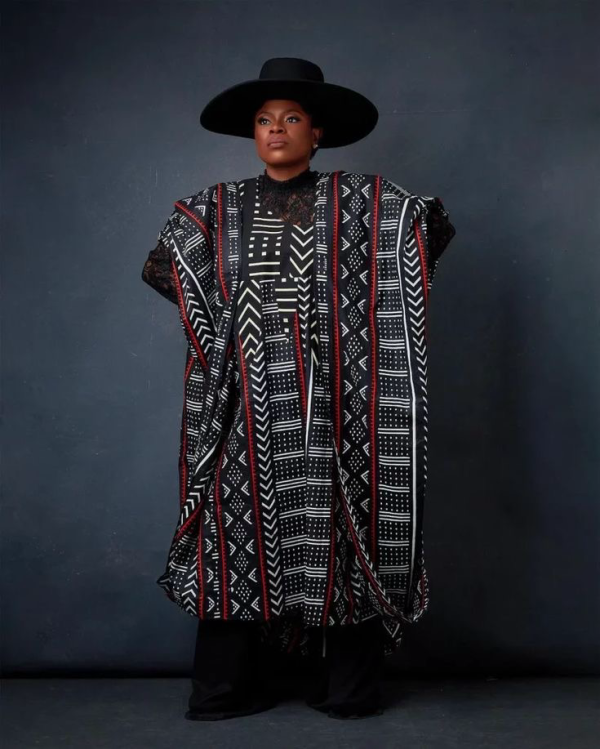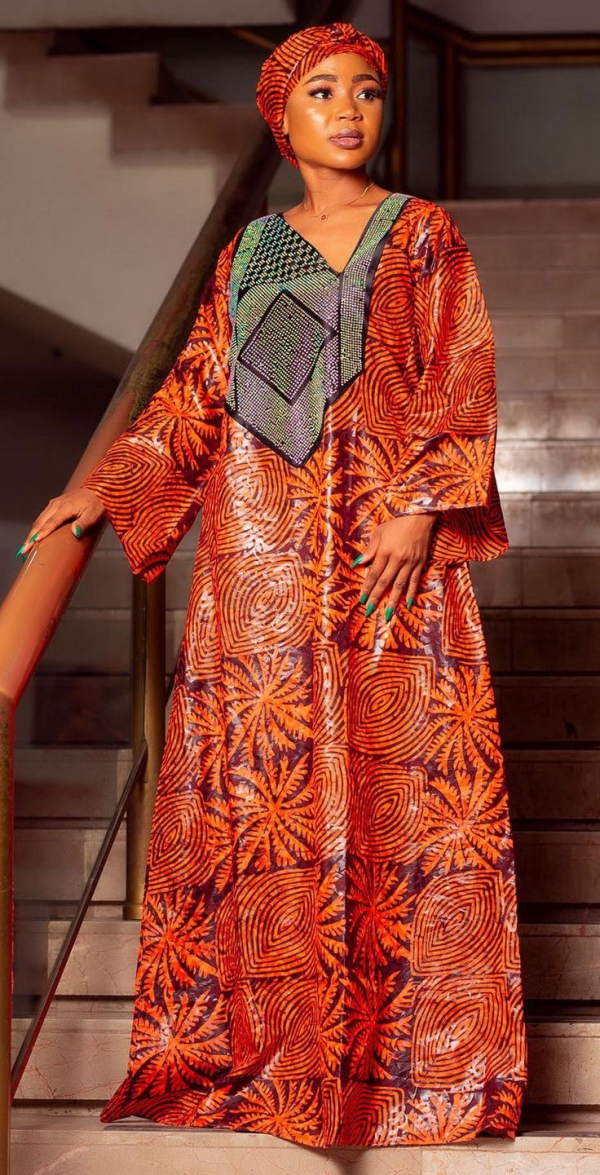The Significance of Agbada: Royal Attire of West Africa
Agbada holds a profound significance as the traditional royal attire of West Africa, particularly among the Yoruba people of Nigeria and the broader West African region. This majestic garment is more than just clothing; it embodies history, cultural identity, and social status, serving as a symbol of authority, prestige, and heritage.

The word “Agbada” itself comes from the Yoruba language, meaning “garment” or “robe.” It is characterized by its voluminous, wide-sleeved robe worn by both men and women, typically made from luxurious fabrics such as silk, cotton, or brocade. Agbada is often adorned with intricate embroidery, elaborate patterns, and decorative embellishments, reflecting the wearer’s wealth, rank, and lineage.

In West African societies, Agbada is closely associated with royalty, nobility, and important ceremonial occasions. It is traditionally worn by kings, chiefs, and other dignitaries during formal events, festivals, and religious ceremonies. The grandeur of the Agbada reflects the wearer’s status and authority, commanding respect and admiration from the community.

Beyond its ceremonial significance, Agbada also serves as a cultural symbol, connecting individuals to their heritage and ancestral traditions. The intricate designs and motifs woven into the fabric often carry deep meaning, representing aspects of Yoruba cosmology, mythology, and history. Each Agbada is a work of art, imbued with layers of symbolism and cultural significance.
The wearing of Agbada is not limited to formal occasions but is also an expression of cultural pride and identity in everyday life. Many West Africans, regardless of social status, choose to wear Agbada for special events such as weddings, naming ceremonies, and cultural celebrations. In doing so, they honor their heritage and pay homage to their ancestors.

Agbada embodies the richness and diversity of West African culture, serving as a timeless reminder of the region’s vibrant traditions and enduring legacy. As West Africa continues to evolve and thrive, Agbada remains an enduring symbol of its cultural identity and heritage for generations to come.
